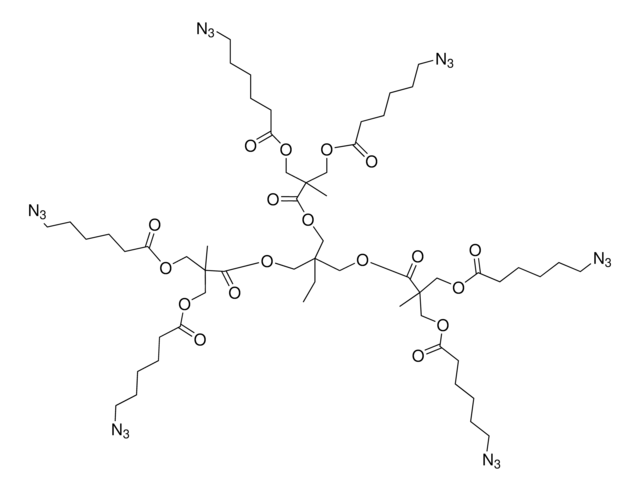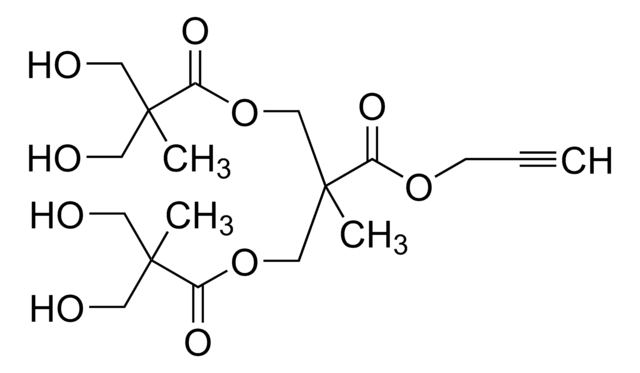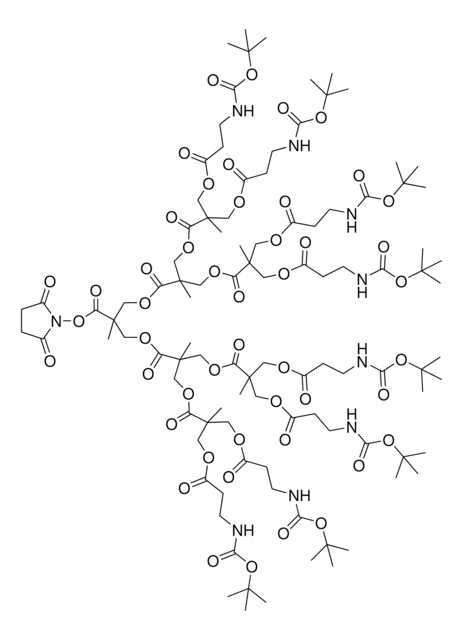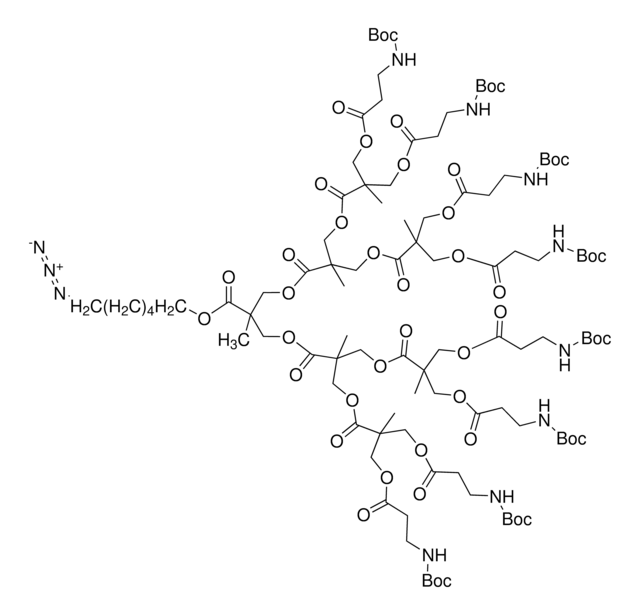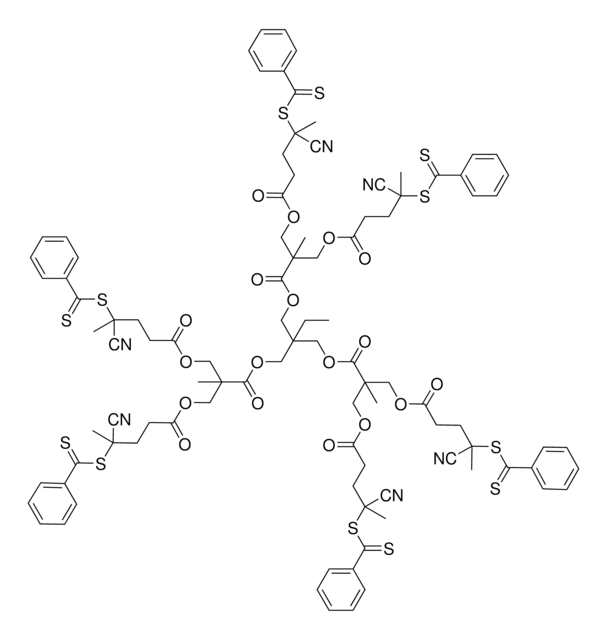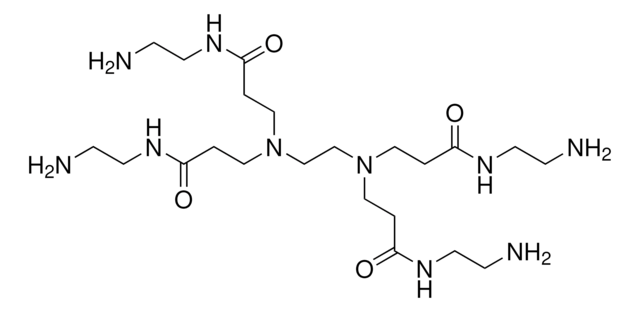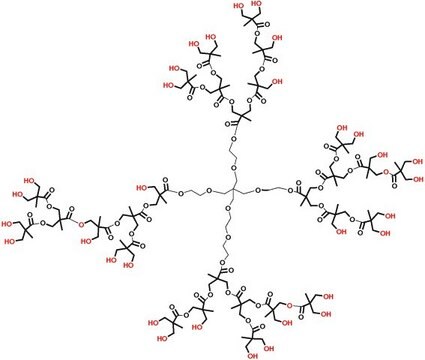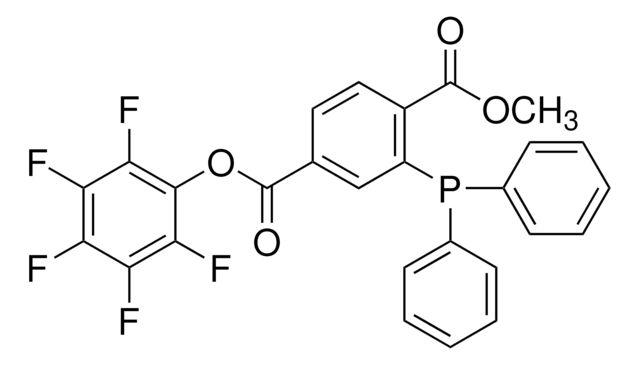901355
Polyester bis-MPA dendron
16 acetylene, 1 NHBoc (core), generation 4
Synonym(s):
Bis-MPA dendron, PFd-G4-BocNH-acetylene
Sign Into View Organizational & Contract Pricing
All Photos(2)
About This Item
Empirical Formula (Hill Notation):
C203H247NO101
Molecular Weight:
4317.08
UNSPSC Code:
12162002
NACRES:
NA.23
Recommended Products
General description
- Polymer architecture: Dendron
- Generation: 4
- Core functional group: Boc-protected amine
- End group functionality: Alkyne
- No. surface groups: 16
- Calculated mol. wt.: 4317.12 g/mol
- Boc: tert-Butyloxycarbonyl
- Bis-MPA: 2,2-Bis(hydroxymethyl)propionic acid
Application
Bis-MPA (or 2,2-bis(methylol)propionic acid) is an aliphatic, pro-chiral molecule comprised of two hydroxyls and one carboxylic group that has been used in the synthesis of many different types of polymers. Dendrons synthesized from bis-MPA are biodegradable and have low cytotoxicity, making them well suited for use in biological research applications. These materials have been used in many applications such as signal amplification in bioassays and in drug delivery applications. These alkyne-functionalized dendrimers can be readily functionalized using either copper(I)-catalysed alkyne-azide cycloaddition (CuAAC), strain-promoted alkyne-azide cycloaddition (SPAAC), or thiol-yne click reactions. Additionally, the amine-functionalized core can be readily used in EDC or DCC coupling reactions (after Boc deprotection) with carbonyl-containing compounds to yield highly functionalized materials for a variety of biomedical applications.
Storage Class
11 - Combustible Solids
wgk_germany
WGK 3
flash_point_f
Not applicable
flash_point_c
Not applicable
Choose from one of the most recent versions:
Certificates of Analysis (COA)
Lot/Batch Number
Don't see the Right Version?
If you require a particular version, you can look up a specific certificate by the Lot or Batch number.
Already Own This Product?
Find documentation for the products that you have recently purchased in the Document Library.
Anna Carlmark et al.
Chemical Society reviews, 42(13), 5858-5879 (2013-05-01)
Dendritic polymers are highly branched, globular architectures with multiple representations of functional groups. These nanoscale organic frameworks continue to fascinate researchers worldwide and are today under intensive investigation in application-driven research. A large number of potential application areas have been
Our team of scientists has experience in all areas of research including Life Science, Material Science, Chemical Synthesis, Chromatography, Analytical and many others.
Contact Technical Service